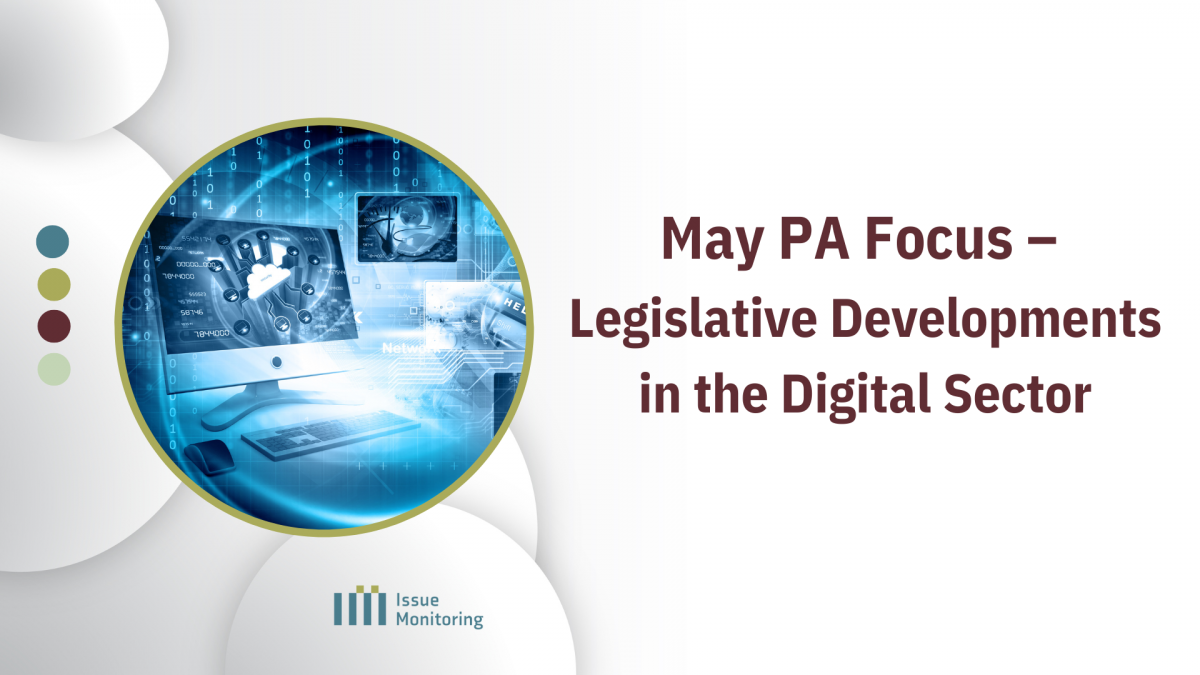
Article inspired by the monthly digital report written by Ana-Maria Anghel
In the realm of digital progress, the Government is actively moving towards digitally transforming both its citizens and public authorities. Last month, it launched a national program to digitize local authorities and their interactions with citizens and businesses, while the Ministry of Digitalization devised a plan for Romania’s digital decade. This plan focuses on four main pillars, including enhancing digital skills of citizens and employees, and improving digital services provided by authorities. Additionally, there is a new strategy for continuous adult education, envisioning a nationwide network of centers for recognizing digital skills to obtain a digital certificate. This initiative aims to address Romania’s development and competitiveness challenges by enhancing citizens’ digital capabilities.
If you are interested in delving deeper into these subjects, Issue Monitoring is crafting a customized PESTEL report to suit your company’s requirements. Now, let us explore the key legislative changes in the digital sector that took place in May.
Safeguarding Online Integrity
As the Government and Parliament have previously adopted the legal framework for implementing the EU Digital Services Act, ANCOM issued the secondary legislation for a safer and fairer online environment. There are three decisions that were agreed with the representatives of industry and civil society and adopted by ANCOM:
- First decision: Establishment of a procedure for settling digital services complaints.
The authority evaluates each complaint and determines whether to initiate an investigation.
- Second decision: Definition of the process for designating reliable notifiers.
Individuals capable of flagging the existence of illicit content in the online sphere.
- Third decision: Certification of entities for resolving disputes with online platform providers.
ANCOM’s forthcoming certification aims to facilitate out-of-court resolution mechanisms.
- Current status: Pending publication of all three decisions in the Official Gazette.
Pioneering AI Governance
The EU’s groundbreaking AI Act, adopted in May, signifies a monumental step towards AI governance. With a ‘risk-based’ approach, the legislation aims to strike a delicate balance between innovation and societal well-being. However, the AI Act will not apply to the military and defense industries, and it provides exemptions for research purposes as well.
Legislative Triumphs and Challenges
While progress has been made on the regulatory front, certain legislative proposals faced roadblocks. his month: the senators decided to reject the legislative initiative proposed by AUR MPs which regulates the implementation, use, development, and protection of AI in the economic, social, technological, medical, cultural and military sectors.
Urgency in Digital Transformation
Following years of anticipation, local authorities are on the brink of digitalization, thanks to the Government’s recent adoption of an emergency ordinance for the National Program aimed at transforming local public authorities digitally.
Anticipated Developments in June
In June, several significant developments are anticipated in Romania’s digital landscape. The government is poised to adopt a legal framework for critical entities, aligning with EU directives to bolster the resilience of crucial industries. Simultaneously, the EU’s groundbreaking AI Act is set for publication in the Official Journal, signaling a milestone in regulating artificial intelligence.
Moreover, local authorities are poised for digitalization following the recent enactment of an emergency ordinance by the Government for the National Program. This ordinance, which has been recently published in the Official Gazette and has reached the Senate, where it was duly registered, is slated for review by Senate committees to commence discussions.
Lastly, progress is expected on the draft of a new audiovisual law, navigating debates in the Senate to regulate various aspects of audiovisual services. These developments underscore Romania’s commitment to embracing digital advancements while ensuring regulatory frameworks align with international standards and national priorities.
Conclusion:
If we were to choose the most important legislative change in May, it would certainly be the adoption of the AI Act by the Council of the European Union. It marks a significant step forward in regulating the use of Artificial Intelligence within the EU. By implementing a risk-based approach and prohibiting harmful AI systems, such as cognitive behavioral manipulation and social scoring, the EU demonstrates its commitment to safeguarding citizens’ rights and ensuring the responsible development and deployment of AI technologies. With this legislative framework in place, the EU aims to promote innovation while mitigating potential risks associated with AI, thus fostering a safer and more ethical digital landscape for its citizens.
May’s regulatory milestones underscore Romania’s commitment to digital innovation and governance. For businesses, navigating this evolving landscape demands agility, foresight, and strategic alignment with regulatory imperatives. As Romania charts its course towards a digital future, businesses must embrace regulatory changes and capitalize on emerging opportunities to thrive in the dynamic digital ecosystem.


